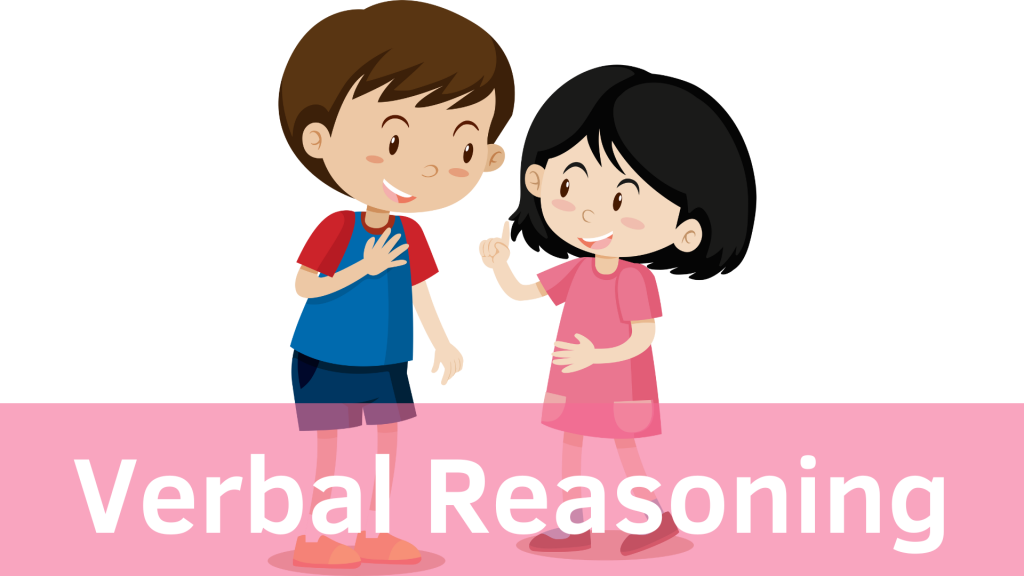Introduction:
In today’s rapidly changing world, the ability to think critically and solve problems is more valuable than ever. Verbal reasoning skills form a crucial foundation for cognitive development, enabling children to analyze, comprehend, and make sound judgments based on language and information. As parents, you have the opportunity to cultivate and enhance your child’s verbal reasoning abilities, equipping them with a valuable skillset for success. In this article, we will explore the concept of verbal reasoning, its significance, and practical strategies to help parents foster this essential skill in their children.
I. Understanding Verbal Reasoning
Before diving into strategies for developing verbal reasoning skills, let’s establish a clear understanding of what it entails:
- Definition of Verbal Reasoning: Verbal reasoning involves the ability to think logically, draw conclusions, and solve problems using words, language, and information. It encompasses skills such as understanding written and spoken language, identifying patterns, and making connections between ideas.
- Importance of Verbal Reasoning:
- Enhances Communication: Strong verbal reasoning skills facilitate effective communication, enabling children to express themselves clearly and articulate their thoughts and ideas.
- Critical Thinking: Verbal reasoning fosters critical thinking abilities, allowing children to analyze information, evaluate arguments, and make informed decisions.
- Academic Success: Proficiency in verbal reasoning positively impacts academic performance across various subjects, such as reading comprehension, writing, and problem-solving.
II. Strategies for Developing Verbal Reasoning Skills
- Encourage Reading:
- Cultivate a love for reading by exposing your child to a variety of age-appropriate books, magazines, and newspapers.
- Discuss the content of the reading material, asking questions to promote comprehension and critical thinking.
- Stimulate Conversations:
- Engage your child in meaningful conversations on various topics, encouraging them to express their thoughts and opinions.
- Ask open-ended questions that prompt critical thinking and encourage them to provide evidence or reasons to support their viewpoints.
- Expand Vocabulary:
- Introduce new words to your child regularly, discussing their meanings and usage in context.
- Play word games, such as word associations or vocabulary quizzes, to make learning new words enjoyable and interactive.
- Practice Storytelling and Narrative Building:
- Encourage your child to create stories, either orally or in written form. This helps develop their ability to construct coherent narratives and think sequentially.
- Solve Riddles and Puzzles:
- Engage in verbal puzzles, riddles, or brain teasers together as a family.
- These challenges promote critical thinking, problem-solving, and the ability to infer and draw conclusions based on given information.
- Analyze and Discuss Media:
- Encourage your child to critically analyze and discuss various forms of media, such as news articles, advertisements, or movies.
- Guide them in identifying persuasive techniques, biases, or logical fallacies, fostering their ability to reason and evaluate information.
- Promote Active Listening:
- Teach your child the importance of active listening, which involves paying attention to others, asking clarifying questions, and summarizing information.
- Engage in activities like storytelling or audiobooks that require active listening and comprehension.
- Debate and Discussion:
- Encourage your child to participate in debates or group discussions where they can present arguments, consider different perspectives, and learn to think critically.
III. Integration into Daily Life
- Real-Life Problem-Solving:
- Encourage your child to solve real-life problems by breaking them down into smaller steps and considering multiple solutions.
- For example, involve them in planning family activities or decision-making processes, allowing them to apply their verbal reasoning skills.
- Mindful Media Consumption:
- Help your child evaluate the credibility and reliability of information encountered online or through media channels.
- Teach them to question sources, fact-check information, and consider different viewpoints before forming opinions.
- Reflection and Journaling:
- Encourage your child to reflect on their experiences, record their thoughts, and make connections between different events or ideas in a journal.
- This practice promotes introspection, critical thinking, and the ability to express thoughts in a coherent manner.
Conclusion:
Developing strong verbal reasoning skills is a gift that parents can give their children. By fostering a love for reading, engaging in meaningful conversations, expanding vocabulary, and encouraging critical thinking, parents can empower their children with the ability to analyze information, think logically, and communicate effectively. Through practice, exploration, and integration into daily life, children can develop and refine their verbal reasoning skills, unlocking their cognitive potential and preparing them for future success in academics, careers, and life’s challenges.




